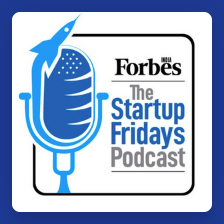This past Saturday, I was at a IIT-Kharagpur as a panelist in their 2018 version of the Global Entrepreneurship Summit. As an early stage investor on a panel that included 2 entrepreneurs and 1 corporate VC the different viewpoints we provided to the same questions was eye-opening. At a point in the discussion the moderator, Flipclass founder, Vineet Dwivedi, asked why Indian VCs prefer founding teams versus single founder start-ups. He shared his own experience of having faced a lot of opposition while raising money. Donning the early stage VC hat, here are some of the reasons I support a team structure versus a single founder.
1. Indian entrepreneurship ecosystem vs global ecosystem
While the entrepreneurial ecosystem in India is improving by leaps and bounds, it is still difficult to start a business, run a business and even close a business in India. A founding team must manage a lot of core and non-core issues to be able to effectively run their venture. These are challenges that the current Indian educational setup does not prepare them for.
Unlike American universities that offer (don’t play the name game) undergraduate programs in entrepreneurship, preparing young talent for the challenges an entrepreneur may run into – the Indian education system does not have that luxury.
The current Indian education system only prepares talent to enter a specific department (finance, technology, etc) in an organization. It does not provide them with entrepreneurial qualities that are needed to run multiple departments in a single business or even manage delegated HOD’s. Therefore I get better sleep at night, knowing that I am investing in a team that has the diversity to secure and grow the different facets of a business versus betting on a single founder that isn’t equipped to deal with all the issues and may be overwhelmed by trying to juggle too many things at the same time.
2. Flexibility required for pivoting
Many of the early ideas lack market validation and are therefore prone to pivot drastically. Therefore, I would rather back a team that has the bandwidth that would permit this quick pivot in case the initial thesis isn’t validated by real data from entering the market.
3. Lack of quality talent
It took me almost two years to find the right CTO for Artha Energy Resources, so I understand the trouble that a startup goes through to find and retain the right kind of talent. As soon as raw talent gains experience and matures, there is dime a dozen established and well-funded companies that are willing to offer tons of money and perks to swindle (I used this word because sometimes the benefits of being with the smaller firm are much larger than a bigger paycheck) it.
I have witnessed co-founders leaving their startup for better opportunities from a competitor after having delivered a fantastic product. So, betting on a single founder increases the risk of my investment. I would rather diversify that risk by investing in a team.
4. Equity hoarding by Founders
It is a unique trait of the Indian entrepreneur to want to hoard all the equity. This alienates key talent that is needed but will not work for anything below the general market salaries that are being offered. The only way to attract this much-needed talent would be to give them generous amounts of equity in the company.
I cannot invest copious amounts of money in the early stages for founders to be able to pay market rate salaries for experienced talent that is required, without accounting for it in larger equity positions (read: Investor math). Instead, I choose to put together a team of people with enough talent to reach the set targets and prevent them from jumping ship by providing an amount of adequate equity while keeping the salary bill affordable.
If a single founder showed maturity in farming out equity to deserving talent, I would prefer working with a single founder with a strong team, rich experience and the incentive to perform.
In a startup ecosystem that is gradually maturing, I am certain that my preference of a founding team over a single founder will be challenged and may even pivot with time. I look forward to facing my theory being stretched, smashed and even replaced.
14/2018






